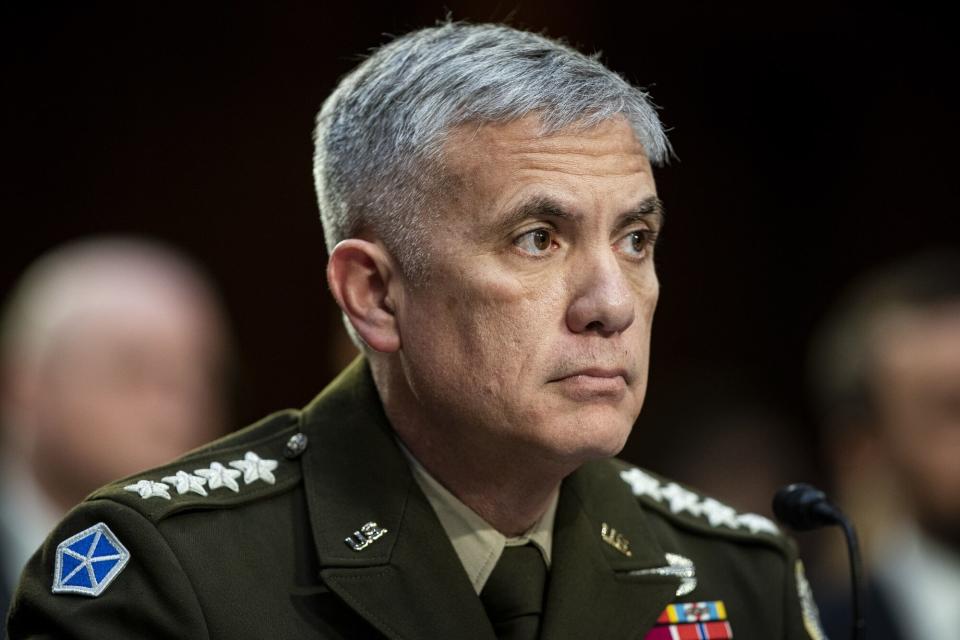Former NSA Boss Calls for More Aggressive Policy to Thwart Hacks

(Bloomberg) -- The US must undertake a “full-time surge” to combat the rise in cyberattacks that is undermining US national security, the recently departed head of the National Security Agency said in an interview.
Most Read from Bloomberg
Trump Vows ‘Day One’ Executive Order Targeting Offshore Wind
GameStop Shares Soar as ‘Roaring Kitty’ Revitalizes Retail Frenzy
China to Start $138 Billion Bond Sale on Friday to Boost Economy
Tesla Rehires Some Supercharger Workers Weeks After Musk’s Cuts
Paul Nakasone, who is also the former commander of Cyber Command and a recently retired four-star general, proposed a more aggressive approach that would focus diplomacy, business partnerships and technical know-how to thwart the threat. The goal, he said, would extend “the same type of work we do for our election security” to all cybercrime.
Under Nakasone, intelligence and offensive hacking teams started combining as a matter of course, focused on finding and disrupting election threats. Key to their efforts tackling election meddling has been efforts to understand the threats, rapidly share information with other partners across government and undertake concrete responses, he said, arguing the US needs to advance all three approaches in a focused way to make a dent in nationwide hacking.
His call comes as the US battles a wave of serious cyberattacks that have gravely affected the health sector and seen US water utilities under attack. It also comes amid warnings from the US government dating back a year that China is preparing to disrupt domestic civilian infrastructure en masse in the event of conflict over Taiwan.
“This is a pretty key moment for us,” Nakasone said, adding US business needs to help deliver a “much higher” cybersecurity level across the nation.
Nakasone will have a chance to push this theme when he becomes head of a new institute at Vanderbilt University, the Institute for National Defense and Global Security, announced on Wednesday and which is due to open in the fall. Nakasone, who is due to start working at the institute next month, said he sees the value of cross-disciplinary approaches to modern conflict. “Maybe it’s part of my DNA – I’m the son of two educators,” he said.
The institute, which will draw on fields as varied as neuroscience, engineering, law and biological sciences, will also serve as an unofficial recruiting pipeline for the Defense Department and US spy agencies, with Nakasone arguing far too few young people are focused on policy.
Daniel Diermeier, chancellor of Vanderbilt University, which has hosted a summit on emerging threats and modern conflict for the past three years, said the intersection of technology and policy is crucial to the endeavor. He argues the public is still grappling with a notion that is already a given among US foreign policy players in Washington: that China has morphed from a key economic market to a threat to US national security. “That’s a massive shift,” he said. “I think that that hasn’t totally penetrated public perception yet.”
Most Read from Bloomberg Businessweek
©2024 Bloomberg L.P.
